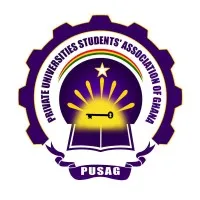The Private Universities Students’ Association of Ghana (PUSAG) has strongly criticised the decision by the National Service Authority (NSA) to withhold the registration of nearly 3,600 students from participating in the upcoming 2025/2026 national service year, describing the move as “unacceptable, unfair, and legally untenable”.
The NSA, in a release dated June 17, 2025, announced that 3,597 students from 22 tertiary institutions would be excluded from national service registration because their schools were either “not accredited” or “unknown to the Ghana Tertiary Education Commission (GTEC)”.
PUSAG, which represents students from 137 private tertiary institutions across Ghana, has condemned the action, stating that while it supports quality assurance and regulatory compliance in the tertiary education space, the burden of regulatory failure should not be passed on to students who have “acted in good faith” and followed all legitimate academic processes.
“The fact that these institutions have been allowed to operate, admit students, and run full academic programmes — many of whom have graduated after years of study — raises serious questions about GTEC’s regulatory vigilance and timelines for enforcement,” the statement read.
“A Generational Betrayal”
PUSAG described the development as a “generational betrayal”, asserting that it is morally and legally indefensible to deny students their right to national service — a statutory requirement under the Ghana National Service Act, 1980 (Act 426) — because of institutional failings that should have been proactively addressed by GTEC.
Citing Section 7(1) of the Act, PUSAG reminded stakeholders that all graduates from recognised tertiary institutions, whether public or private, are liable to undertake national service, and nowhere does the law provide for such eligibility to be revoked due to regulatory lapses of institutions.
Demands Issued to GTEC, NSA, and Ministry of Education
In a strongly worded list of demands, PUSAG has called on the relevant authorities to:
Grant immediate clearance for the affected students to undertake their national service under provisional recognition, while their institutions address any outstanding accreditation issues.
Provide a public explanation of how these institutions were allowed to operate — and have their student data accepted in previous national service cycles — without being flagged by GTEC.
Ensure direct intervention from the Ministry of Education’s Tertiary Education Directorate to prevent further harm to the students’ futures.
The association also called for the creation of a “regularisation window” to allow affected institutions to rectify their status in collaboration with GTEC and the Ministry, thereby safeguarding the rights of their graduates.
“This is not merely an administrative lapse. It is a generational betrayal of the very young people this nation claims to invest in,” PUSAG stated.
Threat of Further Action
PUSAG has warned that it will “explore all appropriate civic, legal, and policy avenues” to protect the interests and rights of its members if its demands are not met.
The controversy comes at a time when concerns over regulatory inconsistencies and the quality assurance mechanisms in Ghana’s higher education system are intensifying. Several affected students and parents have taken to social media to express outrage and distress over the development, with many saying they were never informed that their institutions lacked accreditation.
A Call for Justice and Reason
PUSAG urged all parties involved — including the NSA, GTEC, and the Ministry of Education — to act swiftly and sensibly.
“We cannot build a fair and functional tertiary education system by holding students accountable for institutional and regulatory failures,” the statement said. “Let justice and reason prevail.”
More than 3,500 graduates from 22 tertiary institutions without valid accreditation have been disqualified from participating in the upcoming 2025/2026 national service programme, pending the regularisation of their schools’ status with the Ghana Tertiary Education Commission (GTEC).
According to the National Service Authority (NSA), these institutions have either lost or failed to verify their accreditation status. Until they rectify this with GTEC and provide official documentation, their graduates will not be mobilised for service.
DISCLAIMER: The Views, Comments, Opinions, Contributions and Statements made by Readers and Contributors on this platform do not necessarily represent the views or policy of Multimedia Group Limited.
DISCLAIMER: The Views, Comments, Opinions, Contributions and Statements made by Readers and Contributors on this platform do not necessarily represent the views or policy of Multimedia Group Limited.


